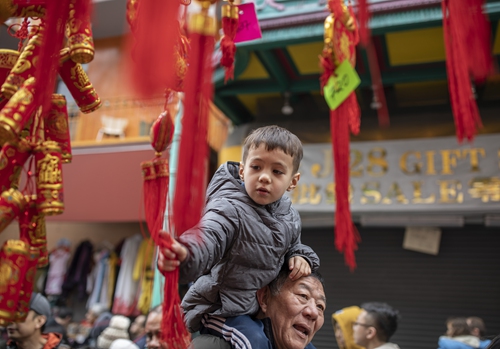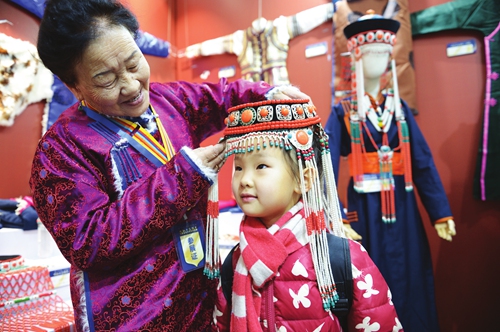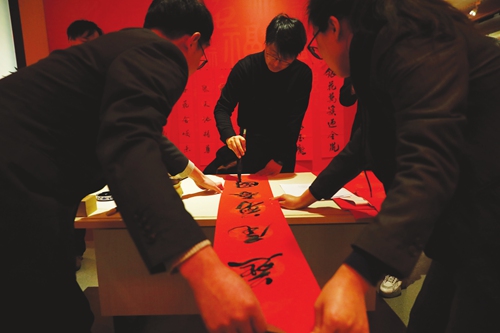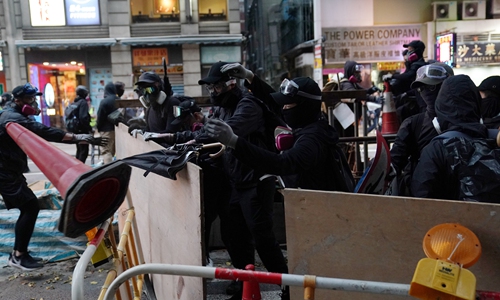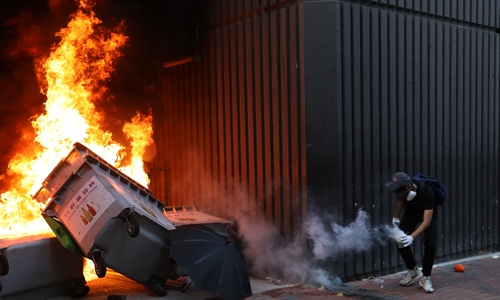
Fight the virus
https://youtu.be/CSeBqhD758E
https://youtu.be/SVwjz8Mmfpk
WHO chief: China deserves gratitude and respect for efforts to fight virus outbreak ...
 |
| WHO director-general Tedros Adhanom Ghebreyesus |
Addressing journalists at a press conference in Geneva, Tedros Adhanom Ghebreyesus thanked the Chinese government for the extraordinary steps it has taken to prevent the spread of the new coronavirus.
Tedros reiterated that almost 99 per cent of cases and all deaths have been within China, with only 68 confirmed cases and no deaths in 15 countries and regions outside China.
"For that, China deserves our gratitude and respect... China is implementing very serious measures and we cannot ask for more," he said.
The WHO chief returned to Geneva on Wednesday from China, where he met with the Chinese leadership to discuss cooperation on implementing containment measures in Wuhan (the epicentre of the coronavirus outbreak) and public measures in other cities and provinces, as well as on conducting studies on the severity and transmissibility of the virus, and sharing data and biological material.
He revealed that one of the strategies the WHO and China have agreed on and are following is serious and strong intervention at the epicentre, which helps limit the spread of the virus.
The WHO chief also thanked China for having identified the pathogen in a short time and shared it immediately, which has led to the rapid development of diagnostic tools.
"China has been completely committed to transparency, both internally and externally, and has agreed to work with other countries that need support," he reiterated, citing the latest case in Germany which, due to the immediate notification and sharing of information by the Chinese government, was very quickly identified and given medical care.
The cooperation between China and Germany in responding to the outbreak is a good illustration of how China is engaging with the WHO and other countries based on the principles of solidarity and cooperation, Tedros said.
"The level of commitment (of the leadership) in China is incredible; I will praise China again and again, because its actions actually helped in reducing the spread of the novel coronavirus to other countries... we shall tell the truth and that's the truth," he concluded.
A WHO team of international experts is to visit China as soon as possible to increase the understanding of the outbreak and guide global response efforts.
Tedros also announced that the WHO Emergency Committee will meet again on Thursday to discuss the outbreak.
Earlier, the committee already met twice on Jan 22 and Jan. 23, and decided that the outbreak had not been a "public health emergency of international concern," citing major reasons that the cases of infection outside China were still limited in number and that the Chinese authorities had already implemented very forceful containment measures. - Xinhua
President Xi: China sure of slaying the 'devil' virus
Xi said that the Chinese people are currently engaged in a serious fight against the novel coronavirus outbreak. People's lives and physical health are always the first priority, and prevention and control of the virus is the most important task at present. Xi said: "I have personally been directing the effort and deploying resources, I believe that as long as we strengthen our confidence, help each other, control and prevent the virus appropriately, and implement policies precisely, we will definitely overcome this disease."
The WHO chief said that China has released information transparently, identified pathogens in record time, and proactively shared relevant viral gene sequences with the World Health Organization and other countries. He added the world has admired how the Chinese government has demonstrated firm political determination and adopted timely and powerful policies in the face of the coronavirus. "I believe that the measures taken by China will effectively control and eventually overcome the disease."
https://youtu.be/6DiiY8a6xMg
WHO: China virus evacuations not necessary | New Straits ...
A growing number of countries have said they will evacuate their citizens from Wuhan, a central city of 11 million people and the epicentre of the outbreak. A chartered plane taking out U.S. consulate staff was set to leave Wuhan on Wednesday, a spokeswoman at the U.S. embassy in Beijing said. Some space was being offered to other U.S. citizens.
India said it was preparing to evacuate its citizens from Hubei province, of which Wuhan is the capital.
Concern is mounting about the impact of the coronavirus may have on the world's second-biggest economy amid travel bans and an extended Lunar New Year holiday. Global stocks fell again, oil prices hit three-month lows and China's yuan currency dipped to its weakest in 2020.
The head of the WHO, Tedros Adhanom Ghebreyesus, in a meeting with State Councillor Wang Yi in Beijing, said he approved of the government's measures to curb the outbreak, the foreign ministry said.
"Tedros said the WHO does not advocate for countries to evacuate their citizens from China, adding there was no need to overreact," the foreign ministry said in a statement. "He said the WHO is confident in China's ability to prevent and control the epidemic."
The WHO chief, who also met Presiddent Xi Jinping, was not available for comment. A WHO panel of 16 independent experts twice last week declined to declare an international emergency over the outbreak.
The flu-like virus has spread overseas, with Sri Lanka and Germany the latest countries to be hit, but none of the 106 deaths has been outside China and all but six have been in the central city of Wuhan, where the virus emerged last month.
Thailand confirmed six more infections among visitors from China, taking its tally to 14, the highest outside China. Far eastern Russian regions would close their borders with China until Feb. 7, Tass news agency said, citing the regional government.
Chinese-ruled Hong Kong said cross-border ferry services would stop.
Wuhan, where the virus apparently jumped to a human in an illegal wildlife market, has been all but put under quarantine, with a lockdown on transport and bans on gatherings.
Tens of millions of others in Hubei live under some form of travel curbs set up to try to stifle the virus.
The WHO said only one of the overseas cases involved human-to-human transmission.
"That’s still one case too many. But we’re encouraged that so far we have not seen more human-to-human transmission outside China," the WHO said on Twitter.
"We’re monitoring the outbreak constantly."
Tuesday's toll of 106 dead was up from 81 the day before. The number of total confirmed cases in China surged to 4,515 as of Monday from 2,835 the previous day, the National Health Commission said.
Incubation estimates
Analysts said China's travel and tourism would be the hardest-hit sectors, together with retail and liquor sales, though healthcare and online shopping were seen as likely outperformers.
Officially known as "2019-nCoV", the coronavirus can cause pneumonia, but it is too early to know just how dangerous it is and how easily it spreads.
Some health experts question whether China can contain it.
Chinese health officials say the incubation period could range from one to 14 days, and the virus is infectious during that time. The WHO estimated an incubation period of two to 10 days.
U.S. President Donald Trump on Monday offered China whatever help it needed, while the State Department said Americans should reconsider visiting China.
Canada, which has two infections and 19 potential cases, warned its citizens to avoid travel to Hubei.
Authorities in Hubei, home to nearly 60 million people, have been the focus of public outrage on China's heavily censored social media over what many see as a bungled initial response to the virus.
In rare public self-criticism, Mayor Zhou Xianwang said Wuhan's management of the crisis was "not good enough" and indicated he was willing to resign.
China's ambassador to the United Nations, following a meeting with UN Secretary-General Antonio Guterres, said his government put "paramount importance" on the epidemic and was working with the international community in a spirit of "openness, transparency and scientific coordination".
Communist Party-ruled China has been eager to seem open in its handling of the epidemic, after it was heavily criticised for efforts to cover up an epidemic of Severe Acute Respiratory Syndrome (SARS) that killed about 800 people globally in 2002-2003.
SARS, which was also believed to have originated in a wildlife market, led to a 45% plunge in air passenger demand in Asia. The travel industry is more reliant on Chinese travellers now, and China's share of the global economy has quadrupled.
With Chinese markets shut for the holiday, investors were selling the offshore yuan and the Australian dollar as a proxy for risk. Oil was also under pressure as fears about the wider fallout grew.
The U.S. S&P 500 closed down nearly 1.6%.
Source link
Read more:
Coronavirus - The Star Online
Coronavirus: Health Ministry releases list of 26 referral ...
Related posts:
Coronavirus 2020 Outbreak: Latest Updates webmd.com Live: Press conference on the novel coronavirus outbreak国家卫健委通报疫情和防控工作最新进展
Tweet #Rightways https://youtu.be/3JS4eBnDVdw A live countdown to the Lunar New Year (also known as Chinese New Year) for Hong Kon...








